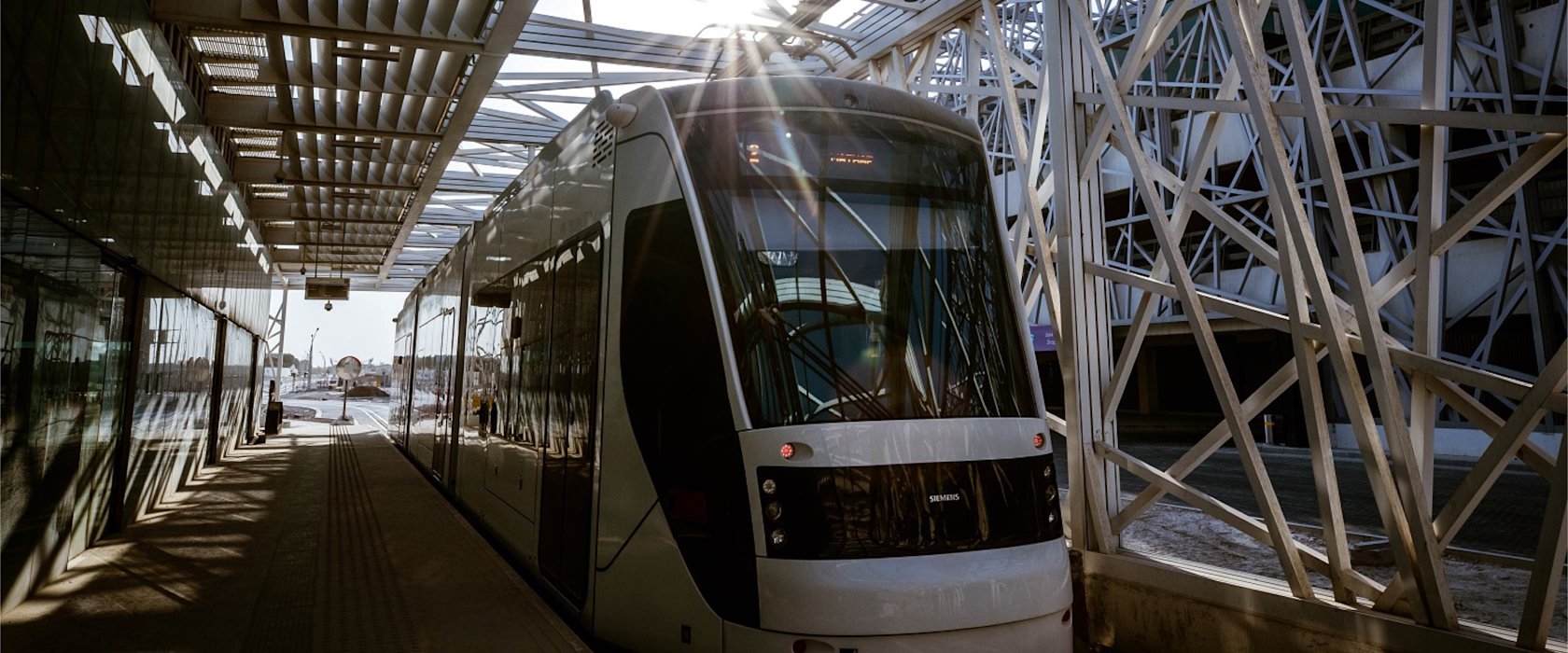Coronavirus (COVID-19) Updates
For the latest COVID-19 information and updates from Qatar Foundation, please visit our Statements page

A QF regulatory law scholar and an environment expert highlight how such initiatives offer an opportunity to develop new habits
Qatar Foundation’s first car-free day will coincide with Qatar’s National Sport Day on February 8, when staff, students and visitors making their way to Education City will need to park their cars in designated spots around campus and then either walk or use alternate modes of transport – such as scooters, bikes, and the Education City Tram – to reach their final destination.
With sustainability being one of Qatar Foundation’s (QF) core values, car-free days at Education City will be a recurring event. Their main goal is to spread environmental awareness and fostering a culture of using public transport, and even walking when the weather allows.
“Days like this represent an opportunity to break old habits and develop new ones,” said Dr. Damilola S. Olawuyi, Associate Dean for Research, College of Law at QF’s Hamad Bin Khalifa University (HBKU).


In this region, we are so used to a car-dependent lifestyle, we don’t even realize that it’s a choice we make every single day without thinking of them as choices
Despite being constantly reminded of the catastrophic consequences of the unsustainable lifestyles most of us live, we are failing to alter our behavior which is key to solving the biggest challenge of our lifetime: climate change. And when there is a lag in adopting better practices ourselves, sometimes we have to tweak our surroundings to initiate a change in habits – and that is what the day is about.
“In this region, we are so used to a car-dependent lifestyle, we don’t even realize that it’s a choice we make every single day without thinking of them as choices,” said Dr. Olawuyi.
“If not by a car, whether personal or a public taxi, how else can we get from point A to point B? We tend to forget the significant environmental and public health costs of excessive car dependency.”
Dr. Olawuyi is an Energy and Environmental Lawyer and has spent the better part of his career studying how different regulatory tools can be adopted to support responsible environmental behavior.


Days like this give people a taste of a different reality which they cannot otherwise imagine
Changing behavior is never easy and straightforward, it is a gradual process which is why days like this are so important; they inevitably nudge people into trying new things. Of course, it doesn’t mean users will switch to it permanently, but having tried it, they will at least know a better and sustainable option is available, and that they are consciously foregoing the more environmentally friendly choice.
“Human psychology is amazing; we love doing feel-good things, so the chances are your brain will convince you to try it again, maybe not every time but at least once a month, and that is still change,” said Dr. Olawuyi.
“Days like this give people a taste of a different reality which they cannot otherwise imagine,” said Rory Sutherland, Vice Chairman of Ogilvy UK, and founder of its behavioral psychology unit.


The first thing to understand is that, unlike global warming, air pollution operates on both the local [neighborhood] scale, as well as the national [regional] scale. It is a regional problem with local and behavioral solutions
According to Sutherland, an expert on consumer behavior, psychologically it is much easier for humans to follow rules which state “don't do something" rather than "try to do less of something", and in this case banning cars rather than encouraging people to use them less. “The absolutism of the rule is what makes it work,” he said.
“Interestingly, we see this in several religions as well – a good example would be fasting. Rules like these jolt people out of self-repeating habits and vary things to prevent monotony.”
QF has the right environment to bring about sustained change. It has a tram network, the Education City campus is walkable, and alternate modes of transport like bikes and scooters are available. The infrastructure is there, it is only the active participation from people that is needed to turn intentions into actions.
Car-free day also allows the opportunity to measure the actual impact of reducing cars in terms of mitigating emissions and improving air quality, both of which are useful for evidence-based policy formulation at a national level.
“Days like this often create a ripple effect, and other organizations might be motivated to try it too. The first step is always the most difficult one, once the movement gains momentum, it can make a real and substantial difference in a matter of a few years,” said Dr. Olawuyi.
Speaking about the environmental impact, Mohammed Ayoub, Senior Research Director, Environment & Sustainability Center, at Qatar Environment and Energy Research Institute (QEERI), part of HBKU, said: “The first thing to understand is that, unlike global warming, air pollution operates on both the local [neighborhood] scale, as well as the national [regional] scale. It is a regional problem with local and behavioral solutions.”
What this means is, from an air quality perspective the individual choices we make matter very much. “If we decrease our emissions today, we will almost immediately see an improvement in air quality,” said Ayoub.
When talking about championing greenhouse gas reduction or improving air quality, it is important that it is done in a way that is sustainable and economically viable. Ayoub added: “The most effective way to do that is through behavior change.
“What we don’t want is a one-time reaction, but a sustained behavioral change stemming from improved awareness and more importantly the willingness to do our part.”




